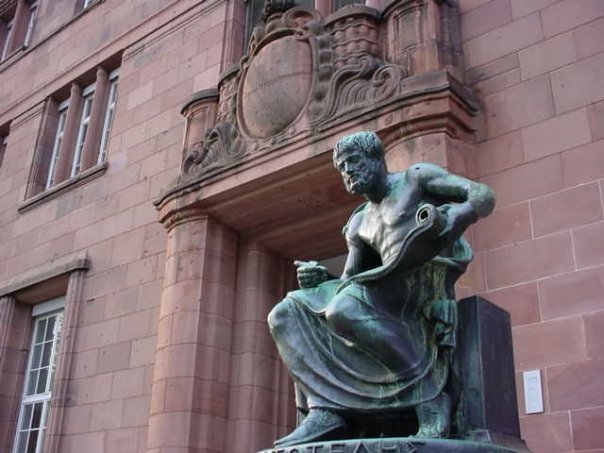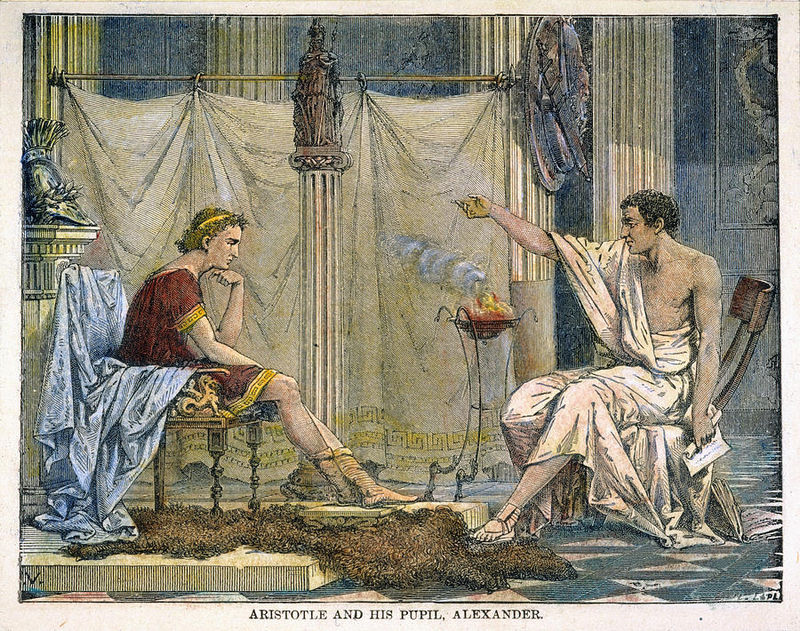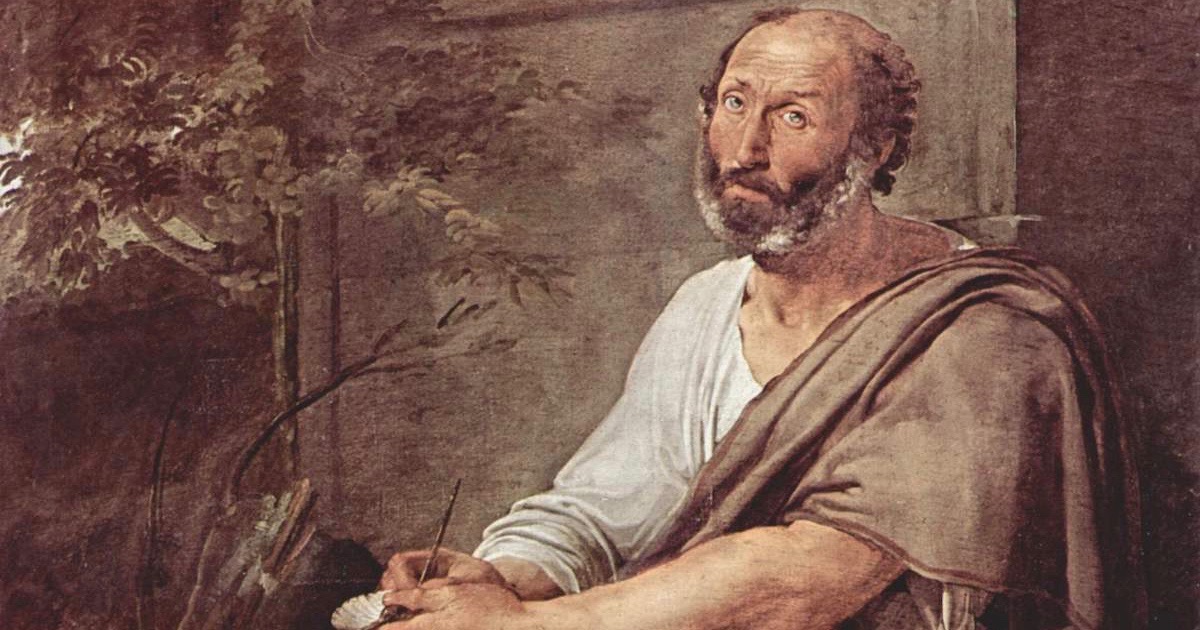Of Aristotle’s writing, some readers were struck by the accuracy, some by the tone, others by the diligence, incision and insight of Aristotle’s words. Marcus Tulius Cicero, the most prominent man of letters of the late Roman Republic, even referred to Aristotle’s literary style as an ‘aureum flumen’, a ‘river of gold’.
However, Cicero was in the minority.
A great thinker, innovator, teacher, researcher, chronicler and international icon Aristotle may well have been, but there were very few who considered him to be a great writer.
The influential 5th century AD philosopher and critic Ammonius Hermiae did his best not only to excuse this shortcoming, but to turn it into a positive. He claimed that Aristotle deliberately withheld information in order to make it difficult to pierce through his prose so that “good people may for that reason stretch their mind even more, whereas empty minds that are lost through carelessness will be put to flight by the obscurity”.
So, he’s not a bad writer – he’s just too good for the likes of us to understand!

Aristotle with a Bust of Homer by Rembrandt. Oil on canvas, 1653
However, another ancient critic surmised the more commonly held view when he said that Aristotle “surrounds the difficulty of his subject with the obscurity of his language, and thus avoids refutation – producing darkness, like a squid, in order to make himself hard to capture”.
In Aristotle’s defense, he was following the hardest of hard acts by taking up the gauntlet thrown down by Plato; the rarely-disputed master of elegantly-written philosophy. It has been said that “Plato’s dialogues are polished literary works, the brilliance of their thought matched by the elegance of their language. Aristotle’s surviving writings for the most part are terse. His arguments are concise. There are abrupt transitions, inelegant repetitions, careless allusions. Paragraphs of continuous exposition are set among staccato jottings. The language is spare and sinewy”.
Another important caveat is added by Dr Jonathan Barnes’ in his seminal work on Aristotle: “fine words butter no parsnips, and fine language yields no scientific profit”.
So perhaps Aristotle is immediately off-putting and then suddenly, brutally irresistible? He is to philosophy what smoking is to recreation, though infinitely better for your health.

Bronze statue, University of Freiburg, Germany, 1915
It should also be noted that the Aristotle read in antiquity was not the same man we read today. His early work, that which made him famous, is now lost to us, presumably for evermore. What survives is what he wrote during his second spell in Athens from 335 to 322 BC.
And these works were intended merely as lecture notes, as a teachers’ book; designed to be read, reread, annotated, experimented with, and improved upon by Aristotle and his colleagues. Little wonder then that Aristotle’s work can at times come across as disjointed and self-contradictory.
Regardless, he had a profound influence on the European mind, and by extension the minds of the Americas and Antipodes. He was also respected by Jewish scholars of the middle ages and their Islamic counterparts referred to him as ‘the first teacher’. Dante dubbed him ‘the master of those that know’, whilst Thomas Aquinas simply called him ‘the philosopher’.

Aristotle tutoring Alexander, illustration by Charles Laplante, 1866.
He is said to have had a mind which was ‘ordered, balanced and stunningly capacious’. Indeed, some suspect that he may have been the last man in existence who knew all that it was possible to learn.
Aristotle was a lecturer far more than he was a writer, and as such his words should ideally be heard and not read. Thus, we shall finish with some inspirational thoughts of a man who was limitless in his own ability to think:
“We must not listen to those who urge us to think human thoughts since we are human, and mortal thoughts since we are mortal; rather, we should as far as possible immortalize ourselves and do all we can to live by the finest element in us – for if it is small in bulk, it is far greater than anything else in power and worth.”










One comment
The problem is Aristotle really did have it figured out being the beneficiary of the teachings of Socrates and being schooled by Plato. His written work took on human form and became Alexander of Macedon. I am convinced that Socrates was very discouraged when he saw the hubris overcome his prized creation. Very sad indeed.
Trackbacks
Our apologies, you must be logged in to post a comment.